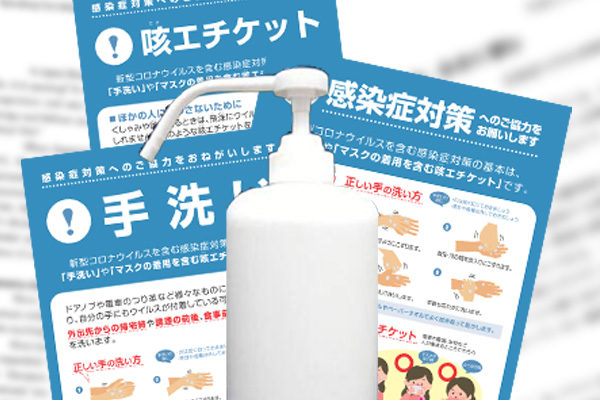Novel coronavirus infections have continued a spread, forcing the Japanese government to suspend its Go to Travel campaign as a pillar of its economic stimulus package to cope with the pandemic. Media polls have found that approval ratings for the Yoshihide Suga administration have fallen by more than 10 percentage points in one month, potentially inviting a political crisis. Nevertheless, Japan’s infection prevention measures are limited to the avoidance of the three Cs (closed spaces, crowded places, and close-contact settings), mask wearing, and hand disinfection. The present coronavirus countermeasures lack policies utilizing science and engineering.
Importance of preventive maintenance
I major in maintenance science, or maintenology. Preventive maintenance for infectious diseases means to make a strong effort in preventing infections, while ex-post maintenance means to provide healthcare to infected people. The concept of preventive maintenance exerts effects on the whole of Japan and the world. I would like to propose for the third time in the Speaking Out column to mobilize hypochlorous acid water as well as ultraviolet rays, photocatalysts, and all other science and engineering methods that effectively kill viruses. This would help Japan recover economic strengths and substantially ease excess burdens on medical institutions.
The use of hypochlorous acid water dates back to 150 years ago. There was a gap between puerperal fever incidence rates at two maternity wards at the Vienna General Hospital. As puerperal fever was attributed to tainted hands of medical doctors, they were encouraged to wash their hands and use chlorine water for disinfecting hands in 1847. Disinfection pioneer Semmelweis Ignác contributed to reducing puerperal fever incidence sharply. Viruses had not been discovered then.
Hypochlorous acid is a substance used by white blood cells (neutrophils) for killing viruses and bacteria inside the body. It is harmless to humans. Nevertheless, Japan’s Pharmaceutical and Medical Device Act does not admit the use of hypochlorous acid water for disinfecting hands. On television, Medical doctor Tetsuya Matsumoto, vice president of the Japanese Society of Infection Prevention and Control and chairman of the National Institute of Technology and Evaluation (NITE), has frequently insisted that hypochlorous acid water should not be used for disinfecting hands. The society’s website also calls for refraining from using hypochlorous acid water for that purpose. But look. Multiple hospitals to which the society’s directors belong have had cluster coronavirus infections involving more than 20 people, failing to control infection.
U.S. and China encouraging hypochlorous acid water to be used
Since the NITE on May 29 announced that any effect of hypochlorous acid water was not confirmed, hypochlorous acid water sprayers have been removed simultaneously throughout Japan. Then, novel coronavirus infections began to gradually increase in Japan. In the final days of the year, the supply-demand balance of hospital beds is tightening due to rapid growth in infections under a dry weather in winter.
In the United States, the Environmental Protection Agency has registered hypochlorous acid water as a recommendable disinfectant against novel coronavirus, leading dentists and oral surgery doctors to use for post-surgery disinfection. The American Bureau of Shipping also encourages the use of hypochlorous acid water to disinfect ships.
In China, the National Health Commission in its guideline stipulates hypochlorous acid water is suitable for disinfecting indoor air, hands, the skin, and mucosal membrane. The 2017 Technical Standard for Disinfection of Hospital says that hypochlorous acid water can be also used for disinfecting surgical instruments and wounds and that hypochlorous acid water with a density of 100 ppm may be sprayed for air disinfection.
Japan can become a science and technology nation and balance infection prevention with economic reopening only when political leaders utilize the power of science and engineering.
Tadashi Narabayashi is a specially appointed professor at the Tokyo Institute of Technology and a director at the Japan Institute for National Fundamentals.


